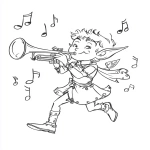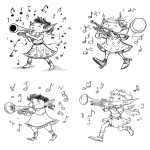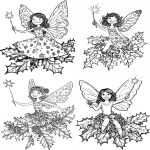Explore the Best AI Image Gallery

Transforming Marketing Through AI-Generated Images
In the rapidly changing landscape of marketing, brands are constantly on the lookout for innovative techniques to capture their audience's attention. One of the most significant trends shaping this space is the use of AI-generated images. These sophisticated technologies not only enable faster production cycles but also afford a level of creativity and customization that traditional methods often cannot match.
The Impact of AI on the Creative Industry
The creative industry has undergone considerable transformation due to advances in artificial intelligence. Historically, artistic expression relied heavily on human creativity, but today, AI tools can generate images based on specific inputs, existing artworks, or even textual descriptions. For instance, platforms like DALL-E and Midjourney allow users to create intricate, high-quality images in a matter of minutes. This not only accelerates the content creation process but also opens up new avenues for visual storytelling.
Furthermore, the integration of AI into marketing strategies has enabled brands to tailor their visuals to fit the unique preferences of different audience segments. By leveraging machine learning algorithms, marketers can analyze consumer behavior and design images that resonate more profoundly with their target demographics. Ultimately, this leads to higher engagement rates and better conversion metrics.
Potential Uses of AI-Generated Images in Marketing
The potential applications of AI-generated images in marketing are vast. Here are some notable uses:
- Social Media Content: AI-generated images can help marketers quickly produce eye-catching visuals for social media campaigns, ensuring a consistent and engaging online presence.
- Product Mock-ups: Brands can utilize AI tools to create realistic product mock-ups without the need for a full production run, allowing for cost-effective testing and consumer feedback.
- Custom Ad Creatives: AI can generate multiple variations of ad images tailored to specific demographics, allowing brands to conduct A/B tests effectively and optimize their advertising efforts.
- Personalized Marketing: By analyzing user data, AI can create personalized visuals for email marketing campaigns or online ads that cater to individual consumer preferences.
- Dynamic Content Generation: During events or holidays, AI can help generate timely visuals that align with current trends or seasonal themes, ensuring the brand stays relevant and engaging.
Ethical Considerations
Despite the numerous advantages, the integration of AI-generated images in marketing is not without its challenges. Ethical considerations play a crucial role in this burgeoning field. Brands must navigate concerns regarding copyright and originality. As AI tools become more advanced, questions arise about the ownership of images and whether they infringe upon existing artworks.
Moreover, there’s the risk of perpetuating stereotypes or biases. If an AI is trained on biased data, it may produce images that reinforce harmful societal stereotypes. Therefore, brands must exercise caution and ensure that the datasets used for training these algorithms are diverse and representative.
Future Trends in AI-Generated Images
Looking ahead, the role of AI in marketing will continue to evolve. Here are some trends expected to shape the future of AI-generated images:
- Increased Customization: As AI algorithms improve, brands will have even more opportunities to customize images based on detailed user profiles and preferences.
- Integration of AR and VR: The combination of AI-generated images with augmented reality (AR) and virtual reality (VR) technology could revolutionize how consumers interact with products, allowing them to visualize how items would look in real-life settings.
- Collaborative Creativity: The future may see artists and marketers collaborating more closely with AI, viewing these digital tools as partners in the creative process rather than mere assistive technologies.
- Sustainability Efforts: As brands increasingly focus on sustainability, AI-generated images could reduce the need for physical prototypes, minimizing waste in product design and marketing collateral.
In conclusion, AI-generated images are redefining the marketing landscape. By embracing these technologies, brands can engage their audiences more effectively, streamline their creative processes, and navigate the complexities of modern marketing. While ethical considerations must be prioritized, the innovative potential of AI in marketing is undeniable, ushering in a new era of creativity and consumer engagement.






](https://images.ai-img.art/thumbnails/150/baf01e7f997f5bc030aa10831575d8b879a4a6755830df4bcd3dcc93346ef1dd.webp)

](https://images.ai-img.art/thumbnails/150/4dfe5499f7f4f9e5aa1613199c58710634f2cba5f57ac7e6717c1d56a9864e1a.webp)



](https://images.ai-img.art/thumbnails/150/ed631f35091268316da1950d8f24949cf71c41220d75ddecc89232e1c28f3653.webp)


















](https://images.ai-img.art/thumbnails/150/fd852e87169bf2f63982b31f7f16a8fa335d75d9536fd48c2b87c7d4b035fa7c.webp)




](https://images.ai-img.art/thumbnails/150/56d08b81b5991eca46f50c80b41db4e9ac06c775cbbf5138ea0734d93390316a.webp)











](https://images.ai-img.art/thumbnails/150/e407417f3921a9491278afc6484ec26f3ae374d4543e1a56898e8bcb1e41a0da.webp)
